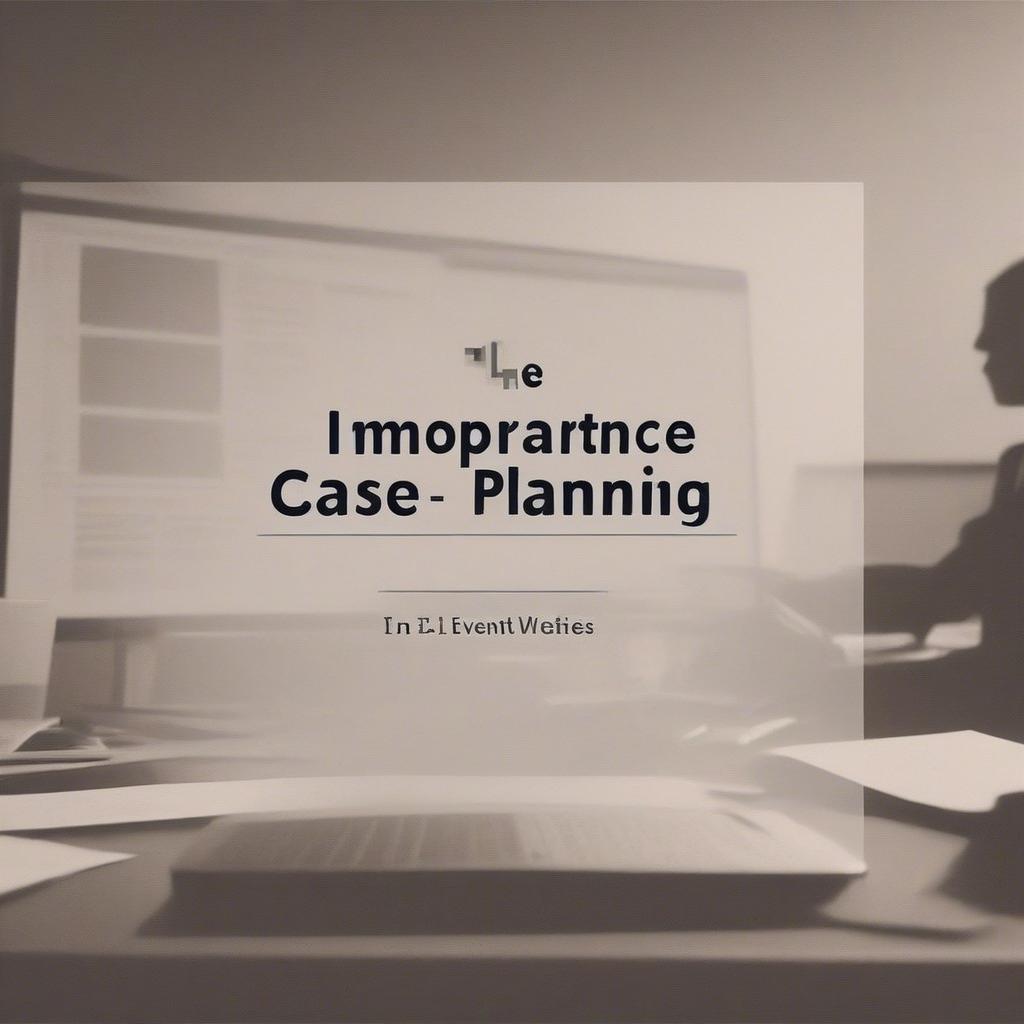
Running an event planning business can be incredibly rewarding. You get to create memorable experiences for people, turning their dreams into reality. But let’s be honest, it also comes with its fair share of challenges, especially when it comes to managing finances. Expenses can quickly spiral out of control if you’re not careful. That’s why optimizing expenses is crucial for profitability and long-term success in the event planning industry. This comprehensive guide provides you with seven actionable tips to help you control costs, maximize profits, and build a thriving event planning business. We’ll explore what expense optimization is, why it’s vital, and how to implement practical cost-reduction strategies.
1. Master the Art of Budgeting and Forecasting
What is Budgeting and Forecasting in Event Planning?
Budgeting in event planning is the process of creating a detailed financial plan that outlines all anticipated income and expenses for a specific event or for your business operations over a defined period. Forecasting, on the other hand, involves predicting future financial performance based on historical data, market trends, and industry insights. Think of budgeting as your roadmap and forecasting as your GPS, helping you navigate the financial landscape.
Why is Accurate Budgeting and Forecasting Essential?
Accurate budgeting and forecasting are the bedrock of expense optimization. Without a clear understanding of your financial inflows and outflows, it’s impossible to identify areas where you can cut costs and improve profitability. Here’s why it’s so critical:
- Prevents Overspending: A well-defined budget acts as a guardrail, preventing you from exceeding your financial limits.
- Identifies Cost-Saving Opportunities: By meticulously mapping out your expenses, you can pinpoint areas where you might be overspending or where you can negotiate better rates.
- Enhances Profitability: Effective budgeting and forecasting allows you to accurately price your services, ensuring a healthy profit margin.
- Informs Decision-Making: When you have a solid understanding of your financial position, you can make informed decisions about investments, marketing strategies, and staffing.
- Attracts Investors and Secures Loans: A well-documented budget and forecast demonstrates financial responsibility, making your business more attractive to potential investors and lenders.
How to Create Effective Budgets and Forecasts:
Here’s a step-by-step guide to creating budgets and forecasts that work for your event planning business:
- Historical Data is Your Friend: Analyze past event budgets and financial statements to identify trends, patterns, and common expense categories. What were your biggest expenses? Where did you overspend? What revenue targets did you achieve?
- Categorize Expenses Meticulously: Break down expenses into detailed categories such as venue rental, catering, décor, entertainment, staffing, marketing, transportation, permits, and contingency funds. The more granular your categories, the easier it is to identify areas for optimization.
- Research and Obtain Quotes: Don’t rely on guesswork. Obtain multiple quotes from different vendors for each expense category. Compare prices, services, and reputations to ensure you’re getting the best value for your money.
- Incorporate Contingency Funds: Always allocate a contingency fund (typically 5-10% of the total budget) to cover unexpected expenses or cost overruns. This will prevent you from derailing the entire budget due to unforeseen circumstances.
- Use Budgeting Software and Templates: Leverage technology to streamline the budgeting and forecasting process. Tools like Microsoft Excel, Google Sheets, or specialized event planning software (e.g., Aisle Planner, Planning Pod) can simplify calculations, track expenses, and generate reports. Consider using pre-built templates designed specifically for event planning budgets. You can find examples in Learn Business [Link to Learn Business Section Below].
- Regularly Review and Adjust: Budgets and forecasts aren’t static documents. They should be regularly reviewed and adjusted based on actual performance and changing circumstances. Compare your actual expenses against your budgeted amounts and identify any discrepancies.
Example: Let’s say you’re planning a corporate gala. Your initial budget allocated $10,000 for catering. After obtaining quotes from multiple caterers, you discover that you can secure a comparable menu for $8,000 by choosing a different vendor. This allows you to reallocate the $2,000 savings to another area, such as enhancing the entertainment or décor.
2. Negotiate Like a Pro: Securing the Best Vendor Deals
The Power of Negotiation in Event Planning
In the event planning industry, your relationships with vendors are critical to success. Negotiation is not about being aggressive; it’s about building mutually beneficial relationships while securing the best possible deals for your clients and your business.
Why is Negotiation Important for Expense Optimization?
Effective negotiation directly translates to cost savings, allowing you to increase your profit margins and offer competitive pricing to your clients. It also strengthens your vendor relationships, leading to better service and preferential treatment in the future.
Practical Negotiation Strategies for Event Planners:
- Research is Key: Before you enter any negotiation, research market rates for similar services. Understand the vendor’s pricing structure, their competitors, and the value they offer.
- Build Rapport and Relationships: Establish a friendly and professional relationship with your vendors. Treat them with respect and understand their needs. A strong relationship can lead to more favorable terms.
- Be Prepared to Walk Away: Don’t be afraid to walk away from a deal if the terms aren’t favorable. Having alternative vendors in mind gives you leverage in the negotiation.
- Bundle Services for Discounts: Negotiate package deals with vendors by bundling multiple services together. For example, if you’re using the same vendor for catering and bar service, ask for a discount on the overall package.
- Negotiate Payment Terms: Don’t be afraid to negotiate payment terms that are favorable to your cash flow. For example, ask for extended payment deadlines or negotiate a smaller upfront deposit.
- Leverage Volume Discounts: If you work with the same vendors frequently, negotiate volume discounts for repeat business. Vendors are often willing to offer lower prices for guaranteed future work.
- Offer Something in Return: Negotiation doesn’t always have to be about price. Offer something of value to the vendor, such as promoting their services to your clients or providing positive testimonials.
- Ask for Extras: Don’t be afraid to ask for extras without additional cost, such as complimentary upgrades, extended service hours, or additional staff.
- Document Everything: Always document the negotiated terms in writing to avoid misunderstandings or disputes later on. This includes pricing, services, payment terms, and any other agreements.
Example: You need to book a photographer for a wedding. The photographer’s initial quote is $5,000 for eight hours of coverage. Through negotiation, you can:
- Reduce the Hourly Rate: By mentioning competitors’ pricing and emphasizing your long-term relationship potential, you negotiate the hourly rate down by 10%, saving you $500.
- Include Additional Services: You negotiate the inclusion of a complimentary engagement shoot, valued at $500, at no extra cost.
- Extended Payment Terms: You negotiate a payment plan that aligns with your cash flow, reducing upfront expenses.
By applying these negotiation strategies, you save $1,000 and secure additional services, significantly optimizing your expenses.
3. Embrace Technology: Streamline Processes and Reduce Overhead
How Technology Transforms Event Planning
Technology has revolutionized the event planning industry, offering powerful tools to streamline processes, automate tasks, and reduce overhead costs. From event management software to virtual site visits, technology empowers event planners to work more efficiently and effectively.
Benefits of Technology for Expense Optimization:
- Automation of Repetitive Tasks: Automate tasks like sending invitations, managing RSVPs, and generating reports, freeing up your time to focus on more strategic activities.
- Improved Communication and Collaboration: Utilize project management software and communication tools to improve collaboration with your team, vendors, and clients, reducing miscommunication and errors.
- Reduced Paperwork and Administrative Costs: Go paperless by using digital contracts, invoices, and expense tracking tools, reducing printing, storage, and administrative costs.
- Enhanced Marketing and Sales: Leverage social media, email marketing, and online advertising to reach a wider audience and generate leads at a lower cost than traditional marketing methods.
- Virtual Site Visits: Conduct virtual site visits using video conferencing or 360-degree cameras to save time and travel expenses.
- Better Data Analysis and Reporting: Use data analytics tools to track key performance indicators (KPIs), identify trends, and make informed decisions to improve efficiency and profitability.
Essential Technology Tools for Event Planners:
- Event Management Software: Platforms like Aisle Planner, Planning Pod, and Eventbrite offer comprehensive features for managing all aspects of event planning, from budgeting and scheduling to vendor management and client communication.
- Project Management Software: Tools like Asana, Trello, and Monday.com help you organize tasks, track progress, and collaborate with your team effectively.
- Communication Tools: Utilize email marketing platforms like Mailchimp, customer relationship management (CRM) systems, and instant messaging apps like Slack to stay connected with clients and vendors.
- Accounting Software: Use accounting software like QuickBooks or Xero to track income and expenses, manage invoices, and generate financial reports.
- Social Media Management Tools: Tools like Hootsuite or Buffer help you schedule and manage social media posts, track engagement, and analyze performance.
Example: By implementing an event management software, you automate sending invitation emails, manage RSVPs, and track guest attendance. This eliminates the need for manual data entry and reduces the risk of errors, saving you time and administrative costs. Furthermore, the software provides insightful data on guest preferences and attendance patterns, enabling you to optimize future events.
4. Go Green: Sustainable Practices for Cost Savings
The Intersection of Sustainability and Cost Reduction
Embracing sustainable practices in your event planning business not only benefits the environment but can also lead to significant cost savings. Clients are increasingly demanding eco-friendly events, and implementing green initiatives can give you a competitive edge.
How Sustainability Optimizes Expenses:
- Reduced Waste Management Costs: By minimizing waste and implementing recycling programs, you can reduce waste disposal fees and potentially generate revenue from recyclable materials.
- Lower Energy Consumption: Using energy-efficient lighting, appliances, and HVAC systems can significantly reduce your energy bills.
- Reduced Transportation Costs: Encourage carpooling, using public transportation, or choosing venues that are easily accessible by public transport to reduce transportation costs.
- Enhanced Brand Image: Promoting your commitment to sustainability can attract environmentally conscious clients and enhance your brand reputation.
Sustainable Practices for Event Planners:
- Choose Eco-Friendly Venues: Select venues that have implemented sustainable practices, such as energy-efficient lighting, water conservation measures, and recycling programs.
- Minimize Waste: Reduce waste by using reusable tableware, linens, and decorations. Encourage guests to bring their own reusable water bottles and coffee cups.
- Source Local and Sustainable Food: Choose caterers who use locally sourced, organic, and seasonal ingredients. This reduces transportation costs and supports local farmers.
- Use Digital Invitations and Programs: Reduce paper waste by using digital invitations and event programs.
- Partner with Sustainable Vendors: Choose vendors who share your commitment to sustainability and offer eco-friendly products and services.
- Implement Recycling and Composting Programs: Set up recycling and composting stations at your events to minimize waste sent to landfills.
- Donate Leftover Food: Partner with local charities or food banks to donate leftover food from events.
- Promote Green Transportation Options: Encourage guests to use public transportation, carpool, or bike to the event.
Example: Instead of using disposable plastic water bottles, provide guests with reusable water bottles and set up water stations throughout the venue. This reduces plastic waste and eliminates the cost of purchasing bottled water. Similarly, you can choose caterers that source ingredients locally, reducing transportation costs and supporting local farmers.
5. Outsource Strategically: Focus on Your Core Competencies
Understanding Strategic Outsourcing in Event Planning
Outsourcing involves hiring external professionals or companies to perform specific tasks or functions that are not core to your event planning business. Strategic outsourcing allows you to focus on your core competencies, such as event design, client management, and vendor coordination, while delegating other tasks to specialists.
Why Outsource for Expense Optimization?
- Access to Expertise: Outsourcing provides access to specialized skills and knowledge that may not be available in-house, leading to higher quality work and better outcomes.
- Cost Savings: Outsourcing can be more cost-effective than hiring full-time employees, as you only pay for the services you need when you need them.
- Increased Efficiency: Outsourcing can free up your time and resources, allowing you to focus on more strategic activities and grow your business.
- Scalability: Outsourcing allows you to easily scale your workforce up or down based on your needs, without the overhead costs associated with hiring and firing employees.
Tasks to Consider Outsourcing:
- Accounting and Bookkeeping: Outsource accounting and bookkeeping tasks to a professional accountant to ensure accurate financial records and compliance with tax regulations.
- Marketing and Social Media: Outsource marketing and social media management to a marketing agency or freelancer to reach a wider audience and generate leads.
- Graphic Design: Outsource graphic design tasks to a freelance designer to create visually appealing marketing materials, event programs, and signage.
- Website Development and Maintenance: Outsource website development and maintenance to a web developer to ensure your website is up-to-date, user-friendly, and optimized for search engines.
- IT Support: Outsource IT support to a managed services provider to ensure your technology infrastructure is reliable and secure.
- Virtual Assistant Services: Hire a virtual assistant to handle administrative tasks, such as scheduling appointments, managing emails, and conducting research.
How to Outsource Effectively:
- Define Your Needs: Clearly define the tasks you want to outsource and the specific skills and qualifications required.
- Research and Vet Potential Providers: Research and vet potential outsourcing providers to ensure they have the expertise, experience, and reputation you need.
- Negotiate Clear Contracts: Negotiate clear contracts with outsourcing providers that outline the scope of work, deliverables, timelines, and payment terms.
- Communicate Effectively: Establish clear communication channels and set regular check-ins to ensure the outsourced tasks are progressing as expected.
- Monitor Performance: Monitor the performance of outsourcing providers and provide feedback to ensure they are meeting your expectations.
Example: Instead of hiring a full-time bookkeeper, you outsource your accounting and bookkeeping tasks to a professional accounting firm. This saves you the cost of salary, benefits, and office space, while ensuring accurate financial records and compliance with tax regulations.
6. Minimize Marketing Expenses: Targeted Strategies for Maximum ROI
The Importance of Efficient Marketing in Event Planning
Marketing is essential for attracting clients and growing your event planning business. However, marketing expenses can quickly add up if you’re not strategic about your approach. The key is to focus on targeted strategies that deliver the highest return on investment (ROI).
How to Optimize Marketing Expenses:
- Define Your Target Audience: Clearly define your target audience, including their demographics, interests, and needs. This will help you focus your marketing efforts on the channels and messages that are most likely to resonate with them.
- Focus on Inbound Marketing: Inbound marketing focuses on attracting potential clients to your website through valuable content and SEO strategies.
- Leverage Social Media: Use social media platforms like Instagram, Facebook, and Pinterest to showcase your work, engage with potential clients, and generate leads.
- Build an Email List: Build an email list of potential clients and send regular newsletters with valuable content, special offers, and event announcements.
- Network Actively: Attend industry events, join professional organizations, and network with other event professionals to generate referrals and build relationships.
- Partner with Complementary Businesses: Partner with complementary businesses, such as photographers, caterers, and venues, to cross-promote each other’s services and reach a wider audience.
- Track Your Results: Track your marketing results to see which strategies are working and which are not. Use data analytics to measure key metrics like website traffic, lead generation, and conversion rates.
Low-Cost Marketing Strategies for Event Planners:
- Content Marketing: Create valuable blog posts, articles, and videos that showcase your expertise and attract potential clients to your website.
- Search Engine Optimization (SEO): Optimize your website and content for search engines to improve your organic search rankings and attract more traffic.
- Social Media Marketing: Use social media to build your brand, engage with potential clients, and generate leads.
- Email Marketing: Send regular newsletters with valuable content, special offers, and event announcements.
- Referral Programs: Encourage satisfied clients to refer new clients to your business.
- Free Online Directories: List your business in free online directories like Yelp and Google My Business.
Example: Instead of spending a large amount on print advertising, you focus on creating high-quality content for your blog and optimizing your website for search engines. This attracts potential clients to your website organically, saving you money on advertising costs. You also leverage social media to showcase your work, engage with potential clients, and generate leads.
7. Continuous Improvement: Regularly Review and Refine Your Processes
The Importance of Continuous Improvement in Event Planning
Expense optimization is not a one-time effort; it’s an ongoing process that requires continuous improvement. Regularly reviewing and refining your processes is essential for identifying areas where you can further reduce costs and improve efficiency.
How to Implement Continuous Improvement:
- Establish Key Performance Indicators (KPIs): Establish KPIs to track your financial performance, such as revenue, expenses, profit margin, and return on investment (ROI).
- Regularly Review Your Financial Statements: Regularly review your financial statements to identify trends, patterns, and areas where you can improve profitability.
- Conduct Post-Event Analysis: After each event, conduct a thorough analysis to identify what went well, what could have been done better, and how you can improve future events.
- Solicit Feedback from Clients and Vendors: Solicit feedback from clients and vendors to identify areas where you can improve your services and processes.
- Stay Updated on Industry Best Practices: Stay updated on industry best practices and emerging trends to identify new opportunities for expense optimization.
- Encourage Employee Input: Encourage employees to share their ideas and suggestions for improving efficiency and reducing costs.
- Implement Changes and Track Results: Implement changes based on your analysis and feedback, and track the results to see if they are having the desired impact.
Tools for Continuous Improvement:
- Financial Reporting Software: Use financial reporting software to track your financial performance and generate reports.
- Project Management Software: Use project management software to track project progress and identify areas for improvement.
- Customer Relationship Management (CRM) Software: Use CRM software to track client interactions and solicit feedback.
- Survey Tools: Use survey tools to collect feedback from clients and vendors.
Example: After each event, you conduct a post-event analysis to identify areas where you can improve efficiency and reduce costs. You solicit feedback from clients and vendors and use this feedback to make changes to your processes. You also track your financial performance to see if these changes are having the desired impact.
By embracing these seven tips, you can significantly optimize expenses in your event planning business, increase your profitability, and build a thriving and sustainable enterprise. Remember, expense optimization is a continuous journey, not a destination. Embrace a mindset of continuous improvement and always be on the lookout for new ways to reduce costs and improve efficiency.
Learn Business: Your Partner in Event Planning Success
Learn Business is committed to supporting businesses like yours by offering guidance, tools, and templates tailored to the event planning industry. We understand the unique challenges you face, from managing budgets and negotiating vendor contracts to marketing your services and delivering exceptional events.
How Learn Business Can Help:
- Event Planning Budget Templates: Streamline your budgeting process with our professionally designed templates, covering all aspects of event planning expenses.
- Vendor Negotiation Guides: Master the art of negotiation with our step-by-step guides, packed with practical tips and strategies for securing the best vendor deals.
- Marketing Plan Templates: Develop a targeted marketing plan to reach your ideal clients and generate leads.
- Business Plan Templates: Build your business strategy with our detailed templates.
- Event Planning Resources: Access a wealth of articles, guides, and resources covering all aspects of event planning, from event design and logistics to client management and marketing.
Visit Learn Business today to explore our resources and discover how we can help you optimize expenses, grow your business, and achieve your goals. [Insert Link to Learn Business Website Here]



Leave a Reply